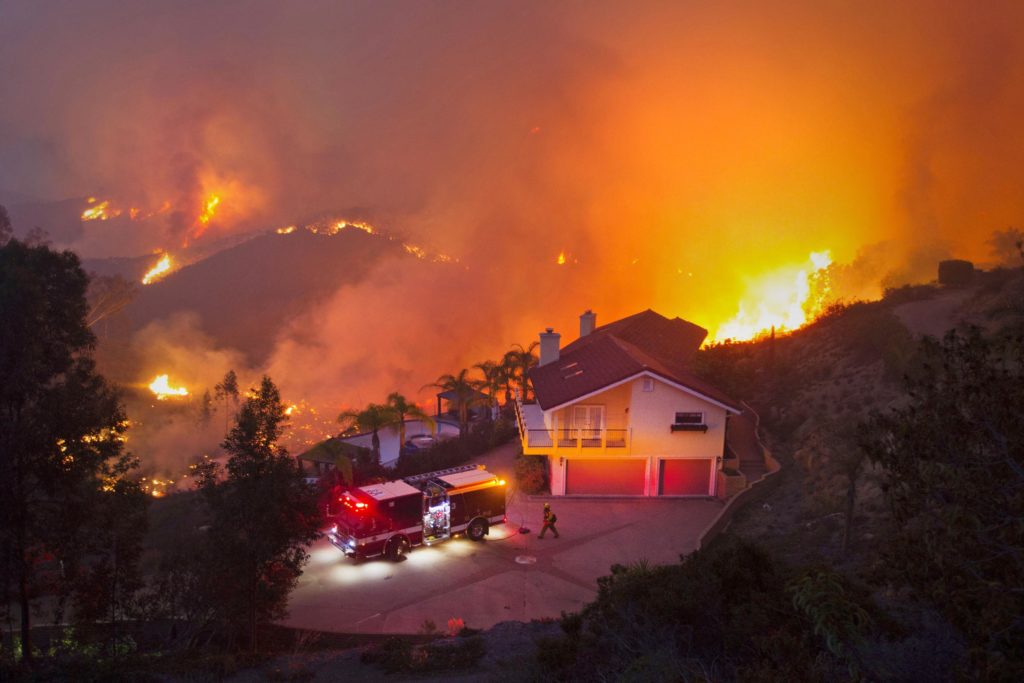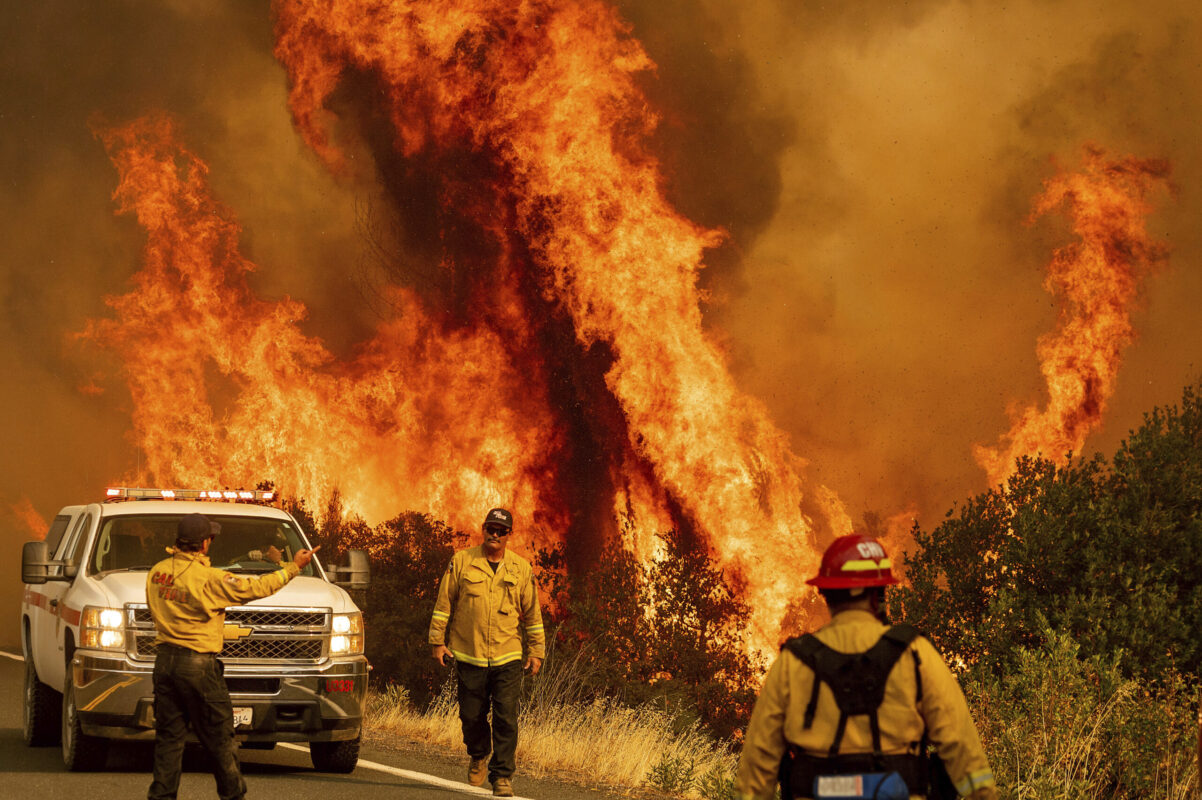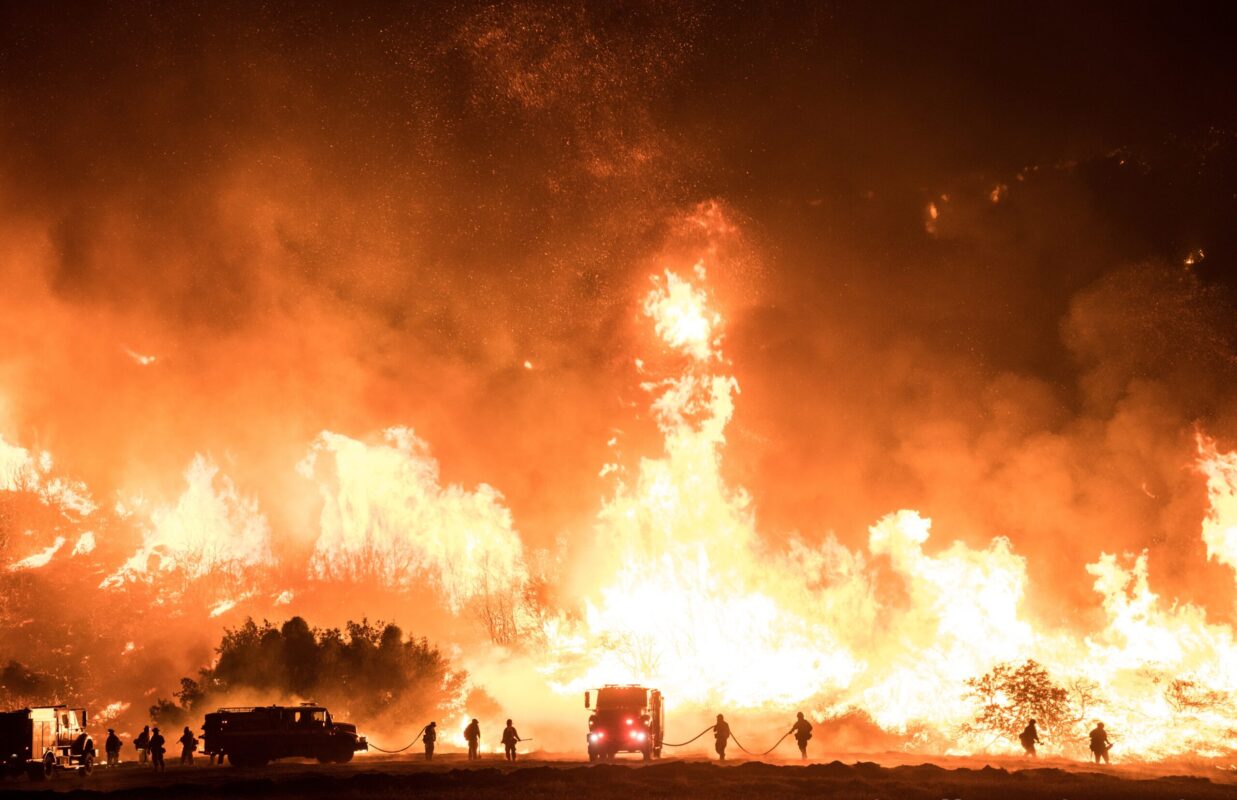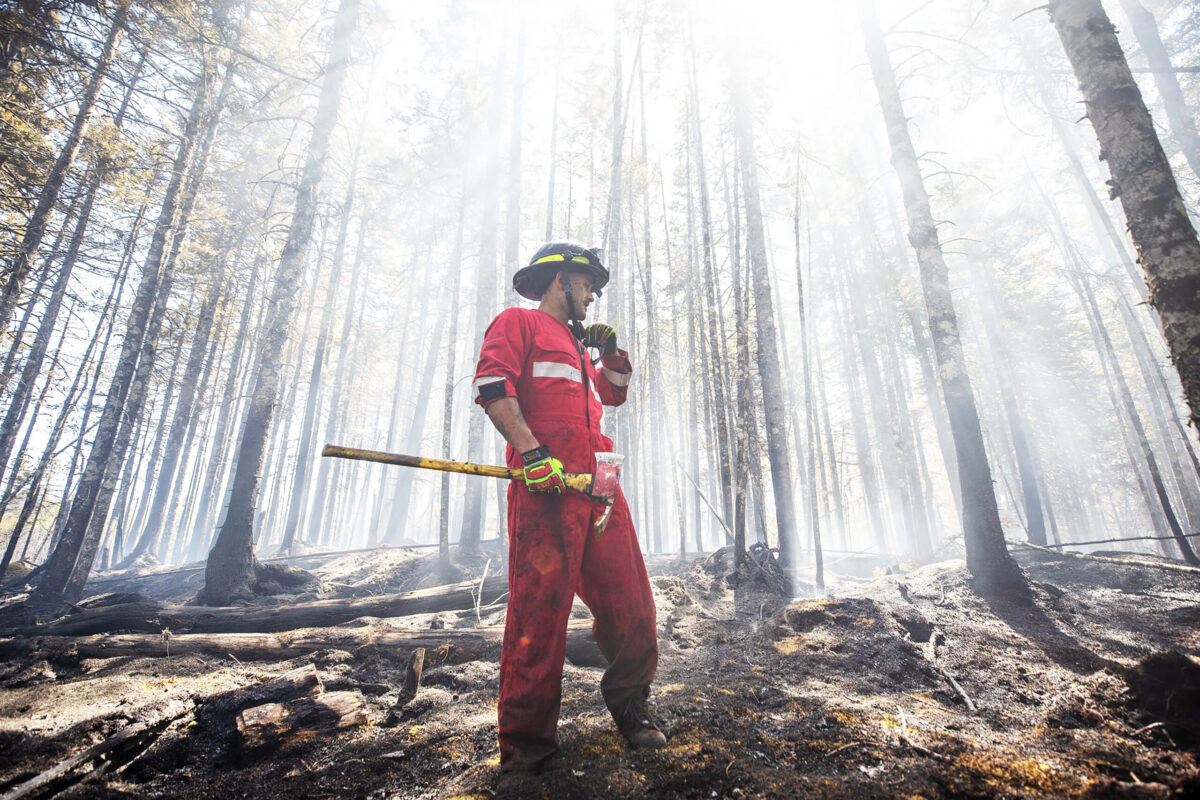
Responding to the Interface (RTI) Training
The IAFF is making sure our members are equipped and trained to safely and effectively respond to the challenges of wildland and urban interface fires.
Increasingly, dangerous urban interface fires are raging across the United States and Canada, becoming catastrophic with enormous loss of property and significant risk to human life. Consequently, IAFF members are faced with a variety of extraordinary challenges that will only worsen if not addressed.
The IAFF is making sure our members are equipped and trained to safely and effectively respond to the challenges of wildland and urban interface fires.
The International is providing resources and programs to help members who are responding to the threat to the urban interface, borderlands and areas within woodlands and urban areas, including:
- Guidance and subject matter expertise on urban interface fire problems
- Technical and real-world experience to advance legislative and administrative actions that protect our members’ health and safety
- Assistance and analysis of IAFF-sponsored fire research
- Expertise to meet training needs of IAFF members
- Advocacy for increased federal funding for fire suppression and response
Training
Protecting communities from wildfires is no longer a job limited to certain regions in the United States and Canada. As the line separating urban, suburban, and rural communities has blurred, wildfires are a threat spanning coast to coast.
The wildland urban interface — the zone of transition between unoccupied land and human development — is growing at an astronomical rate, causing enormous loss of property and significant risk to human lives. According to the National Fire Protection Association, 88 percent of fire departments respond to urban interface fires, but only 40 percent of these departments provide urban interface fire training. Even when training exists, it is often inconsistent and inadequate for the level of response needed.
The IAFF is committed to providing effective, consistent training for structural fire fighters who are now responding to urban interface fires.
Courses Available

This free, 10-hour, online training program is designed to provide fire fighters and company officers a basic understanding of safety, command and control, and strategy and tactics to use when defending structures from wildfires.

The Train the Trainer program is a four-day (32-hour), grant-eligible class designed to train fire department instructors on how to deliver consistent, effective wildfire response training. The training is guided by subject-matter experts and delivered in the local jurisdiction. At the conclusion, fire fighters and company officers will have the ability to teach their fellow colleagues. For more information on grant funding for this course, visit iaff.org/grants.
PREREQUISITES
IAFF’s Responding to the Interface Awareness online course
FEMA’s S-190 Introduction to Wildland Fire Behavior
FEMA’s S-130 Fire Fighter Training (suggested)
Resources
IAFF Structure Defense Guide
ICS 256 FIRESCOPE Card
2025 NWCG Incident Response Pocket Guide (IRPG)
IAFF Wildland Urban Interface (WUI) Training Video
National Interagency Fire Center
California State University San Marcos (CSUSM) Bachelor of Science in Wildfire
CAL FIRE Wildland Urban Interface Operating Principles
NFPA – News and Research on Wildland Urban Interface
IAFF Disaster Relief Fund
IAFF Disaster Relief Fund
Research
Current research on wildland and urban interface fires provides resources and data that can help fire fighters respond to these events, including:
- Effectiveness of building codes in the wildland urban interface.
- Education of homeowners and the public on defensible open spaces and fuels management.
- Unifying and improving effectiveness (agency co-operation and coordination).
- Initial response staffing effectiveness and the value of funding appropriately.
- Effectiveness of firefighting tactics, PPE, physiological impact of wildland firefighting on fire fighters.
Risk Perceptions, Management Regimes, and Wildfire Mitigation Behavior in Wildland-Urban Interface Zones: A Cross-Case Analysis
Wildland Firefighter Health and Safety Report
Smoke Exposure and Firefighter Risk in the Wildland Urban Interface
USDA Wildland Firefighter Smoke Exposure Study
Understanding and Improving Wildland Firefighter Health and Safety: Environmental Stress and Exposure – FEMA Development Proposal
Initial Attack Effectiveness: Wildfire Staffing Study

The IAFF is working with the many wildland/urban interface advocacy groups across the United States and Canada that speak and act for fire fighters to provide guidance on training, education, staffing and health and safety issues that affect our members’ working environment.